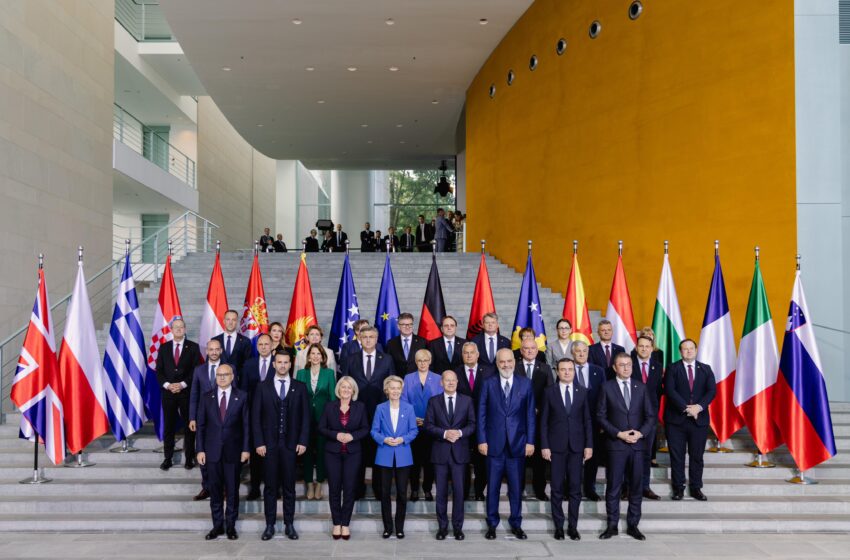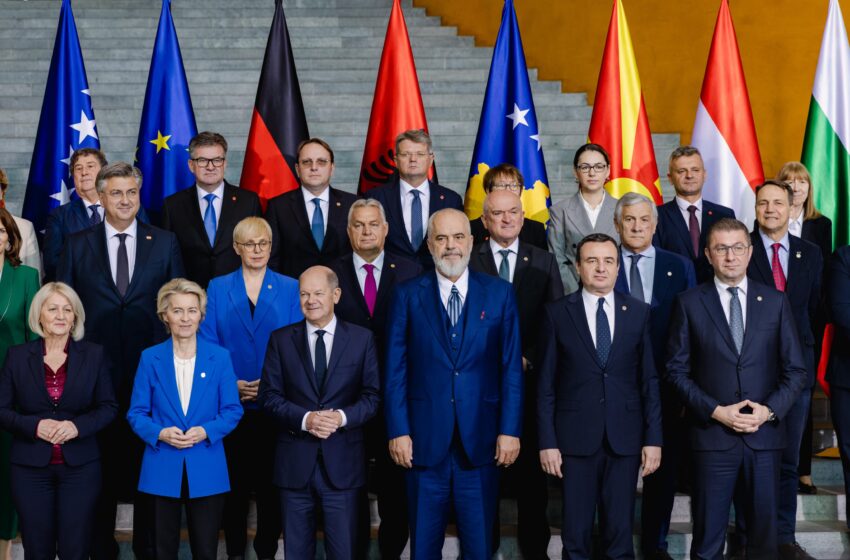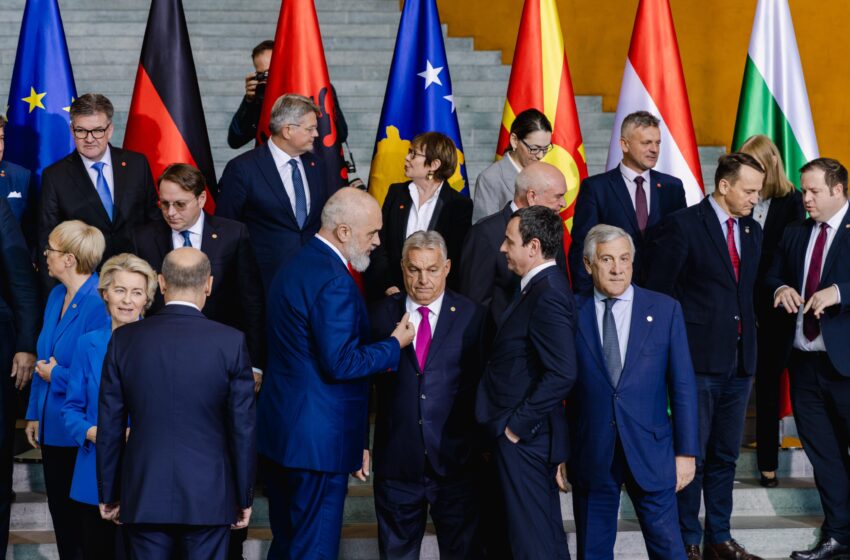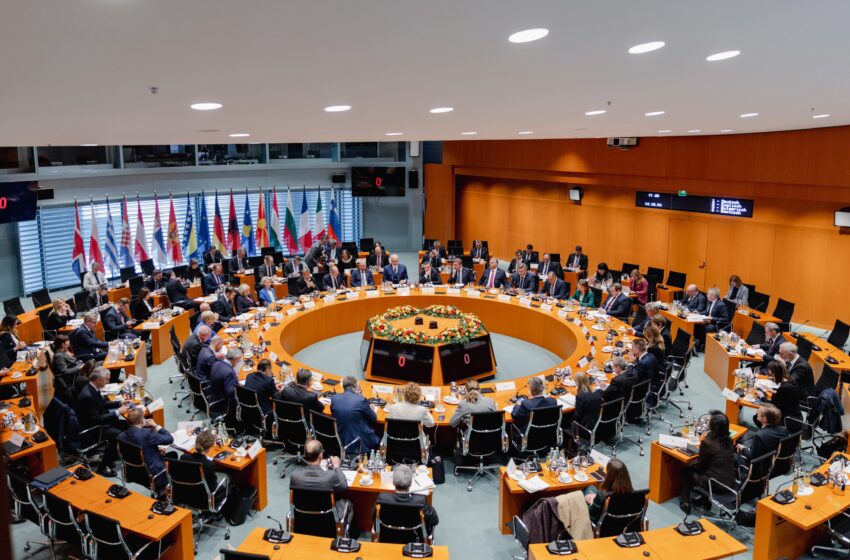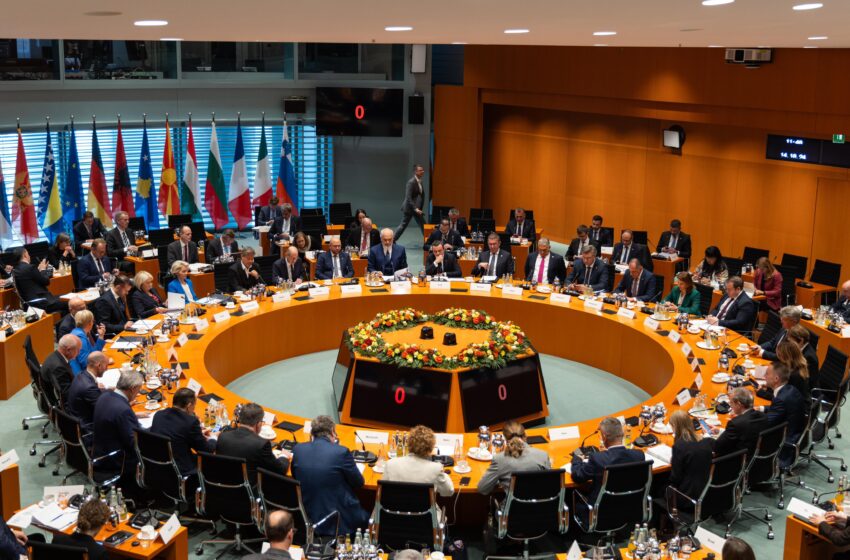Berlin Process marks 10 years: key agreements and future plans for Western Balkans integration
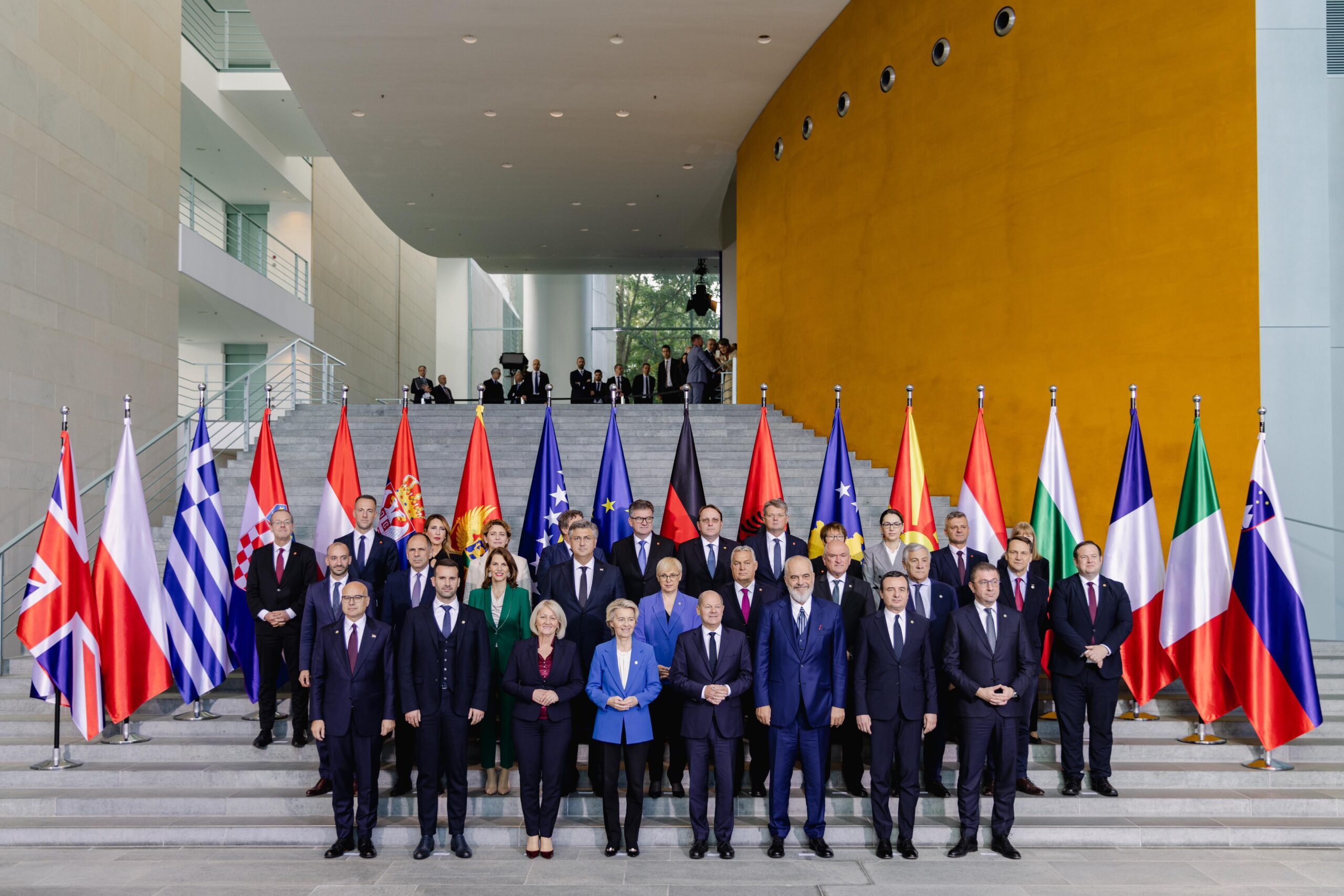
Photo: Western Balkan countries at the 10th-anniversary summit of the Berlin Process
On Monday, German Chancellor Olaf Scholz hosted the leaders of six Western Balkan countries at the 10th-anniversary summit of the ‘Berlin Process.’ European Commission President Ursula von der Leyen, along with representatives from nine EU member states and international organizations, also took part in the discussions. Albania’s Prime Minister Edi Rama was among the leaders present.
Why is it important: The Berlin Process remains crucial for accelerating EU integration and enhancing regional cooperation in the Western Balkans. As the 10th-anniversary summit, this year’s meeting provided an important opportunity to assess progress and chart the way forward, particularly in light of ongoing challenges such as unresolved disputes between Kosovo and Serbia.
Context: Launched by Germany in 2014, the Berlin Process is an initiative aimed at promoting regional cooperation and supporting the integration of the Western Balkan countries—Albania, Bosnia and Herzegovina, Kosovo, Montenegro, North Macedonia, and Serbia—into the European Union. It serves as a platform for fostering collaboration in Southeast Europe and strengthening ties with key EU member states.
One of the key outcomes of the Berlin Process has been the plan to establish a Common Regional Market in the Western Balkans. This plan, which runs from 2021 to 2024, reflects the European Union’s four freedoms: the free movement of goods, services, capital, and people. While progress has been made in deepening economic integration, political tensions, particularly between Kosovo and Serbia, have sometimes slowed implementation.
During the summit, Kosovo’s Prime Minister announced a unilateral decision to allow citizens of Bosnia and Herzegovina to enter Kosovo with just an ID card, addressing one of the sticking points related to Bosnia’s non-recognition of Kosovo’s independence. This was seen as a positive step towards easing regional tensions.
Chancellor Scholz urged leaders to seize the moment and not allow historical grievances to obstruct progress. “The future lies within the EU,” he said, stressing that full implementation of existing agreements is key to moving forward. Last year, Albania chaired the Berlin Process, marking the first summit held outside the EU, and this year’s gathering built on that momentum.
Key deliverables of this year’s summit:
- Plan of Action (2024-2028): A roadmap for furthering the establishment of the Common Regional Market in the Western Balkans, continuing efforts towards economic integration.
- Agreement on Access to Higher Education: This agreement grants students in the Western Balkans the right to pursue studies at accredited institutions and promotes student mobility across the region.
- Joint Declaration on Good Neighborly Relations: Western Balkan leaders committed to confronting the legacies of the past, resolving missing persons’ cases, and addressing bilateral disputes through dialogue rather than using these issues as political leverage.
- Regional FDI Screening Standards: A declaration aimed at aligning investment policies with EU standards to attract more foreign direct investment to the region.
- Research and Innovation Declaration: Promotes collaboration in research and innovation, fostering a dynamic regional ecosystem for scientific and technological advancements.
The summit reaffirmed the importance of regional cooperation as a stepping stone towards EU membership and solidified the Western Balkans’ commitment to mutual progress.
